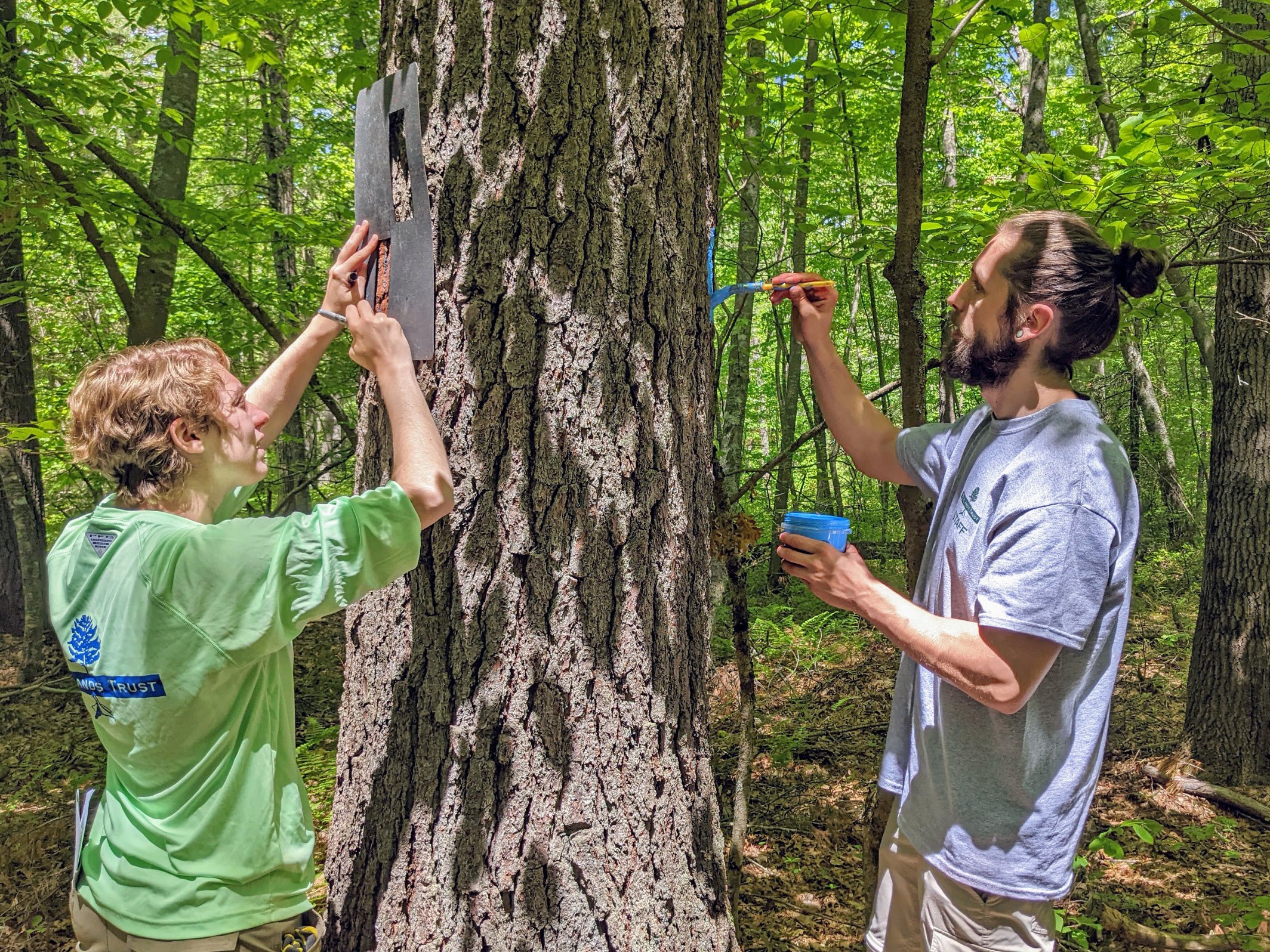Read Time: 2 min
By Rachel Calderara, Director of Special Projects
Summers are for growth; not just for the local flora, but also for our staff! With 10,000 acres to protect in 52 towns, Wildlands’ stewardship staff have their work cut out for them during the growing season. That’s why each summer we hire a handful of seasonal staff to help us tackle the busiest time of year. Not only do they help keep our trails clear and free of obstructions, but our seasonal staff also engage with volunteers, help lead youth projects, and collaborate with partner organizations. As summer winds down, we’d like to take a moment to appreciate everything our stewardship staff accomplished this season in service to the environment and our communities.
Three new staff joined us this summer, doubling the size of the stewardship department. Tess Goldmann, who was first introduced to Wildlands Trust as a high school Green Team member in 2017 and 2018, joined Wildlands as a Seasonal Land Steward after earning a dual degree in Biological Science and Computer Science at Smith College. Lucky for us, she’ll be staying on to help with a variety of projects through the end of the year. Tyler Williams was with Wildlands from May to August and has returned to UMass Boston to complete his senior year as an Environmental Science major. Nico Johnston joined us all the way from Texas for a second summer and returned home in August for his senior year of high school.
The long list of accomplishments that wouldn’t have been possible without Tess, Tyler, and Nico includes:
Constructing two miles of new trails at Halfway Pond Conservation Area.
Installing new roadside signage at Showcase Preserves.
Repairing benches and picnic tables with the Brockton Green Team at D.W. Field Park.
Constructing a half-mile connector trail that links the IHRT loop with the trails at Chapman’s Landing in Hanover.
Installing bog boards at Mark’s Cove Conservation Area with Buzzards Bay Coalition and Wareham Land Trust.
Caring for our conservation lands is both challenging and rewarding, and we are grateful to Tess, Tyler, and Nico for their hard work this summer! We hope you find the time to get out on the trails and enjoy the fruits of their labor this fall.
Does this sound like the kind of work YOU would like to be doing? We’re HIRING a full-time Stewardship Coordinator! Learn more here.
Photo by Rob MacDonald


























